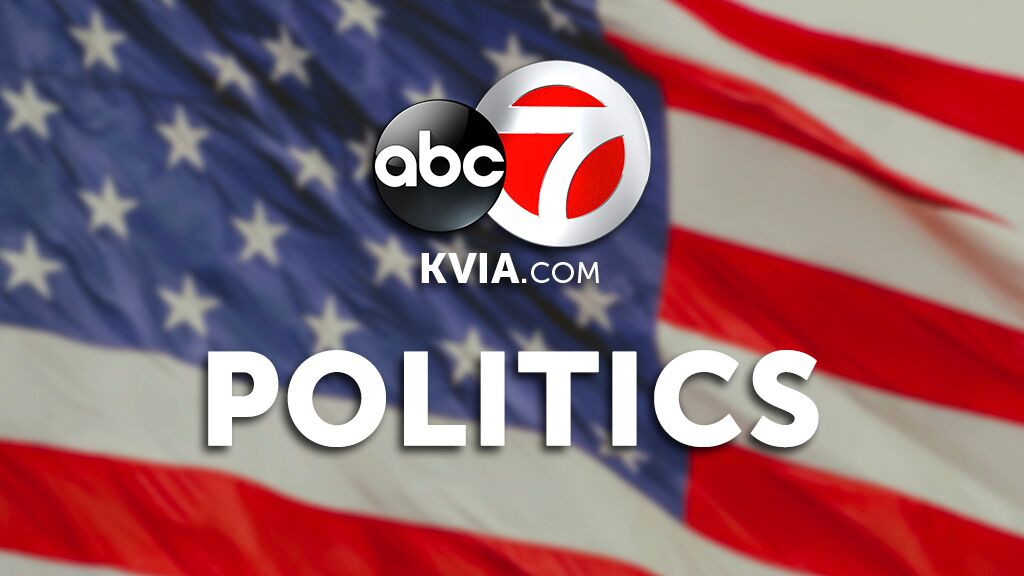Supreme Court — over John Roberts’ sole dissent — rules in favor of student in First Amendment case

The Supreme Court on Monday revived a lawsuit brought by a former student seeking to hold his state university accountable for violating his First Amendment rights when it barred him from speaking about his religion and distributing religious literature.
Justice Clarence Thomas, writing for an 8-1 majority, allowed the lawsuit to continue even though the student, Chike Uzuegbunam, who has since graduated, was only asking for $1 in damages and the school’s policy has changed.
Thomas wrote that it was “undisputed” that Uzuegbunam’s rights were violated and that he could proceed with the case even though he was only seeking nominal damages.
Chief Justice John Roberts, in an unusual lone dissent, said he thought the dispute was now moot. Roberts stressed that the student had graduated and that the challenged restrictions “no longer exist.”
“If nominal damages can preserve a live controversy, then federal courts will be required to give advisory opinions whenever a plaintiff tacks on a request for a dollar,” Roberts wrote.
On the surface, the case was about a dry legal issue concerning so called nominal damages — awards issued when there is a legal wrong, but no actual financial loss occurred as a result of the wrong. But lurking beyond that issue was a fight brought by strange bedfellows seeking to broaden the path forward to sue the government for First Amendment violations.
“I think the most important thing about today’s ruling is what it did not hold. For decades, civil litigants, and especially civil rights plaintiffs, have relied on the notion that alleging minimal damages is a sufficient way to get into court for claims of legal violations that may not have caused quantifiable economic injuries,” said Steve Vladeck, CNN Supreme Court analyst and professor at the University of Texas School of Law
“The lower court’s decision in this case, had it been affirmed, would have thrown that into serious jeopardy. But today’s ruling reaffirms the viability of this approach — and keeps courthouse doors open for those whose rights were violated in a way that may not have caused monetary harm,” he added.
In 2016, Uzuegbunam, an evangelical Christian who was a student at Georgia Gwinnett College, was standing on a stool in a “speech area” at his school, talking about his religion and passing out religious literature. He had followed the school’s direction and reserved a spot designated by the school as a “speech zone.”
But he was approached by campus police who said there had been complaints about his speech. The officer said the space did not allow “open air speaking” and that he had violated the school’s code of conduct because his speech constituted disorderly conduct.
Uzuegbunam and a fellow student sued in December 2016, claiming that the college’s speech policies violated the First Amendment. As the suit was pending, the school changed its policy so that students generally would be allowed to “speak” anywhere on campus without a permit. They asked a district court to dismiss the case, noting that Uzuegbunam had graduated. Lower courts agreed, holding that he could not ask for nominal damages after the school changed its policy.
But lawyers for Uzuegbunam, supported by civil rights groups, asked the Supreme Court to allow such lawsuits to go forward to ensure the government can be held accountable and that there couldn’t be a future policy change. For them, it was not about the money, but the injury.
Kristen K. Waggoner, a lawyer for Alliance Defending Freedom, a religious liberties group representing Uzuegbunam, asked the Supreme Court to revive the lawsuit and asked for $1.00 in damages.
“Nominal damages provide a remedy in many contexts, redressing injuries that transcend price tags, from unconstitutional searches and seizures to free exercise and due process violations, to censorship and compulsion of speech,” Waggoner told the justices.
She drew the support of then-President Donald Trump’s Department of Justice, which argued that the student faced an “unquestionable injury” and the school faced no consequence for its initial action. A brief filed by the ACLU and other civil rights groups also weighed in in favor of the student.
“When confronted with legal challenges to unconstitutional or illegal policies, governments often respond by changing those policies, and then contend that the cases are moot,” Lisa Blatt, a lawyer for the ACLU, told the justices in court papers.
A lawyer for Georgia said the lower courts had been correct and that a nominal damage of a dollar wouldn’t redress past injuries.
At oral arguments, the chief justice at one point suggested there was no longer a live controversy that would allow the lawsuit to continue.
“The only redress you are asking for is a declaration that you are right,” Roberts told Waggoner.
But Justice Elena Kagan pushed a lawyer for the school on what she called the “most famous nominal damages case” of recent time when the singer Taylor Swift sued a radio host for sexually assaulting her.
Kagan noted that Swift had said she wasn’t interested in the money, but reasoned that a $1 nominal damage “is going to represent something both to me and to the world of women who have experience what I’ve experienced.”
On Monday, neither the dissent or the majority opinion referred back to Swift.
